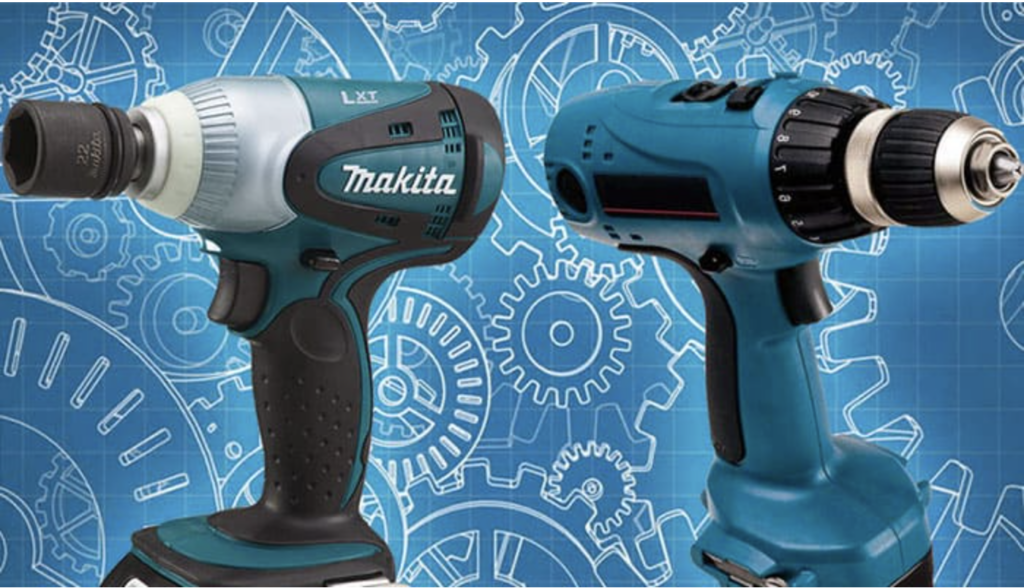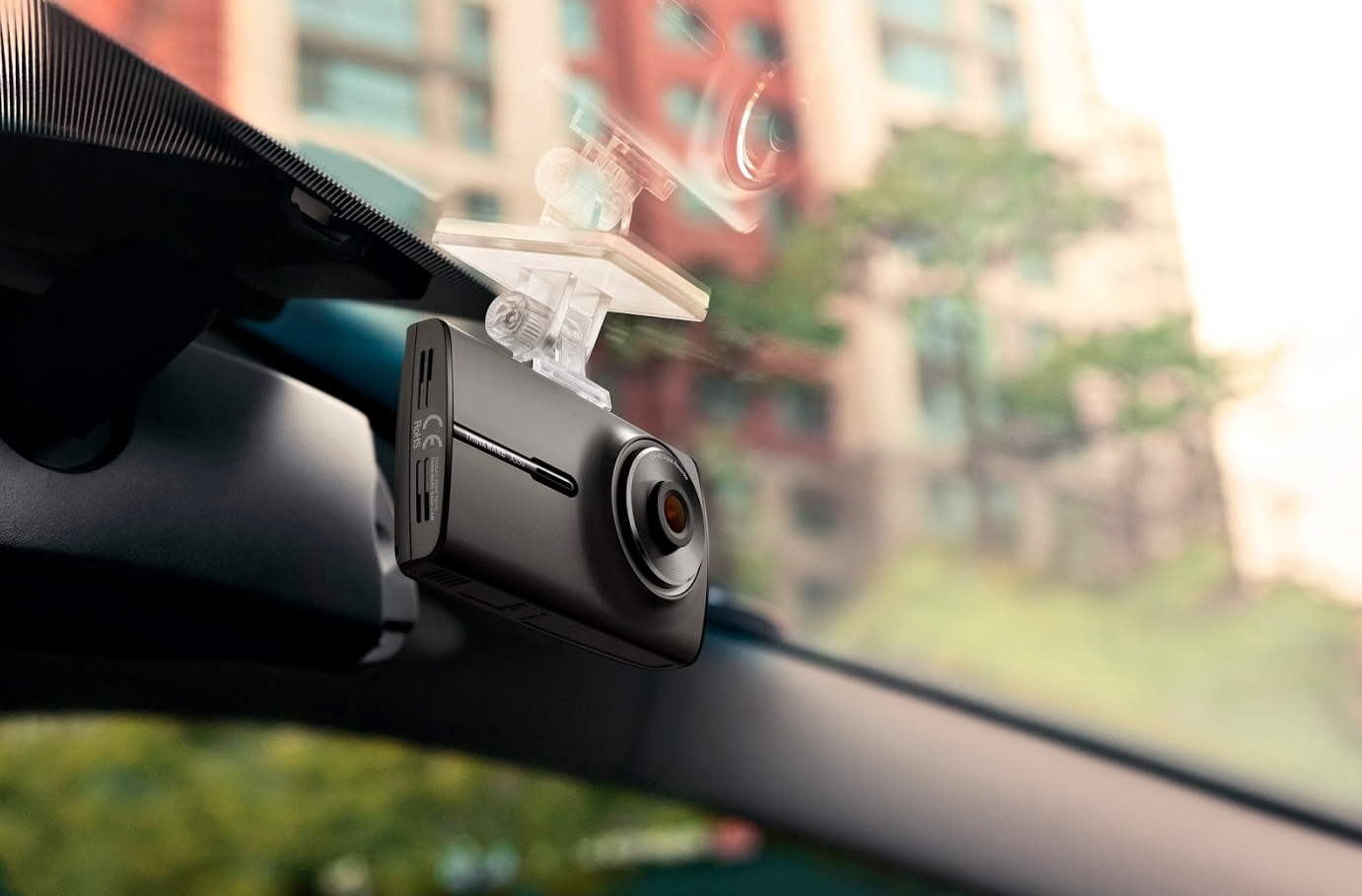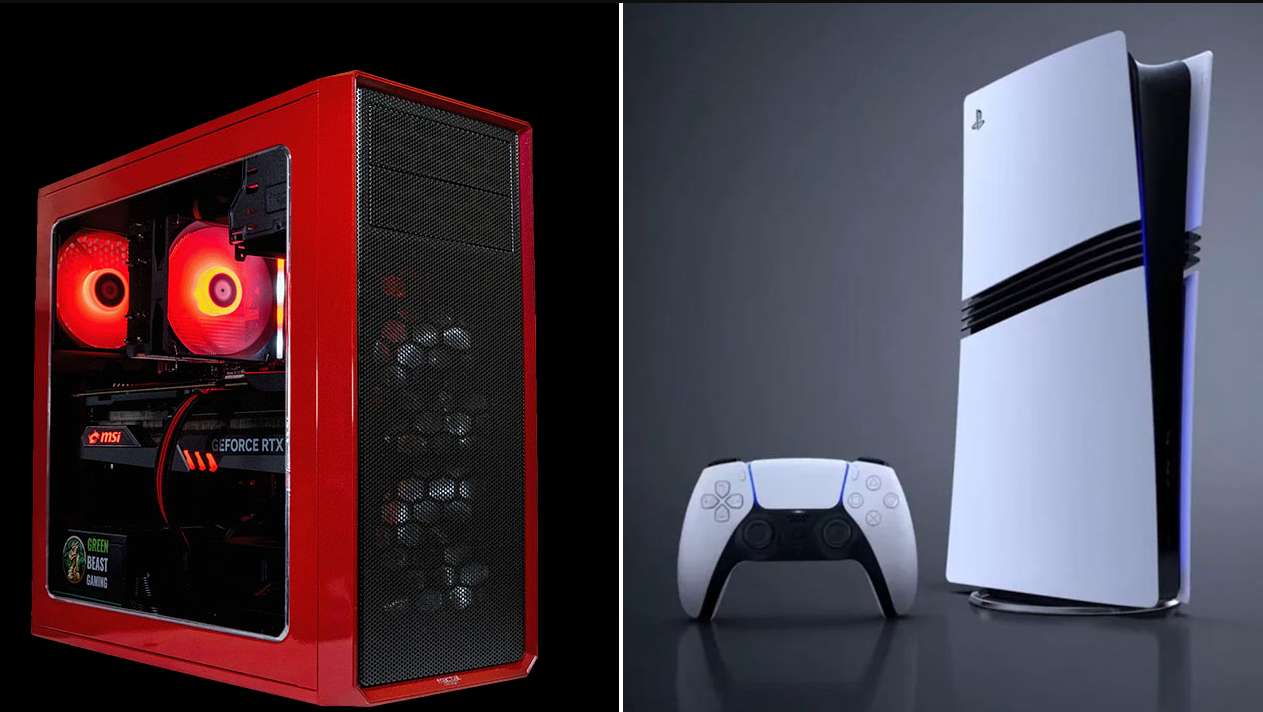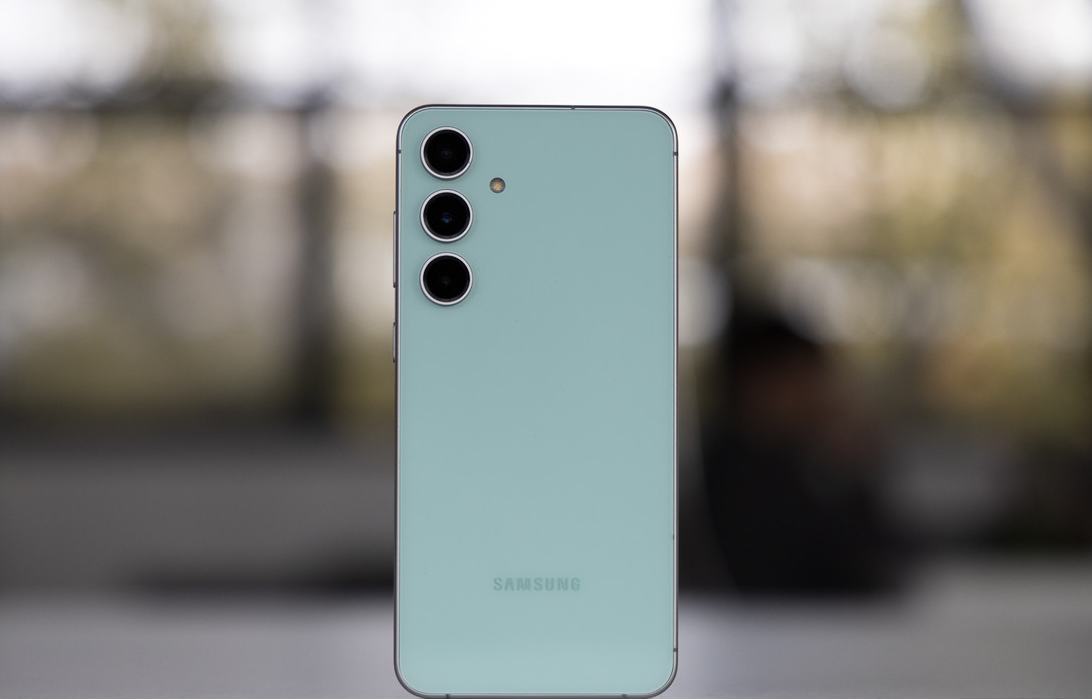In today’s world, where home and professional repairs, as well as various construction and installation works are becoming more and more accessible and widespread, the importance of choosing the right tools cannot be overestimated. Key helpers in this arsenal are screwdriver and nutrunner – tools that at first glance may seem similar, but on closer examination have significant differences that determine their specific application.
These tools make many tasks easier, from assembling furniture to building large structures. They significantly save time and physical effort, improving accuracy and quality of work. A screwdriver and an impact wrench, while performing similar screwdriving and unscrewing functions, differ in a number of ways, including design, power, application and purpose. These differences make each tool unique and indispensable in certain situations.
Professionals and hobbyists are often faced with the choice between a screwdriver and an impact wrench, and understanding their features is crucial to efficiency and convenience. In this article, we take an in-depth look at the key differences between a screwdriver and an impact wrench to help you make an informed choice depending on your needs.
Comparison Chart: Screwdriver vs Nutrunner – Technical Specifications, Advantages and Disadvantages
| Characterisation | Screwdriver | Nutcracker |
| Main purpose | Screwing and unscrewing screws | Tightening and loosening nuts and bolts |
| Power | Less | More |
| Rotation speed | Smaller | Big |
| Chuck type | Quick-clamping | Special nozzle heads |
| Weight and size | Lightweight and compact | Heavier and bulkier |
| Variety of nozzles | High, for different types of screws | Limited, for certain nut sizes |
| Scope of application | Precision and delicate work, furniture assembly, electrical installation | Heavy works, car service, construction |
| Advantages | Precise, easy to use in confined spaces, multifunctional | High power, fast performance, suitable for heavy duty work |
| Disadvantages | Less power, not suitable for heavy duty work | Less accurate, heavier and bulky |
Design and Operating Principle
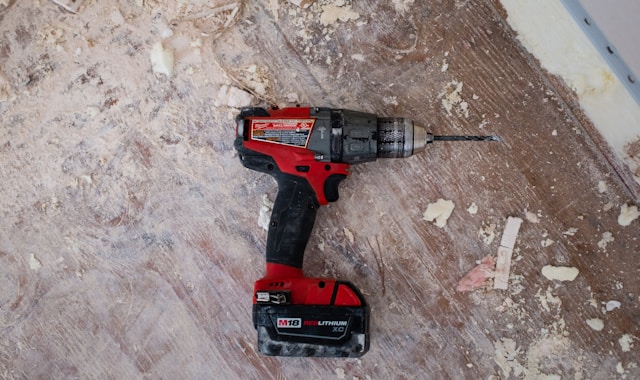
Screwdriver:
This tool is specially designed for use with screws and self-tapping screws. It has a number of design features that provide high precision and control over the screwdriving process. Screwdrivers are often equipped with torque settings, allowing the user to precisely adjust the force on the screw, minimising the risk of damaging or twisting it. This is particularly important in areas such as furniture making, precision joinery or electrical installations.
Nutcrackers:
Specialised for working with bolts and nuts, distinguished by its higher torque than screwdrivers. This makes it the ideal tool for tackling obsolete or tightly fastened fasteners. Screwdrivers are most effective in scenarios where high power is needed to get the job done quickly and efficiently, such as assembling or dismantling heavy metal structures, use in car workshops or on construction sites.
Power and Speed
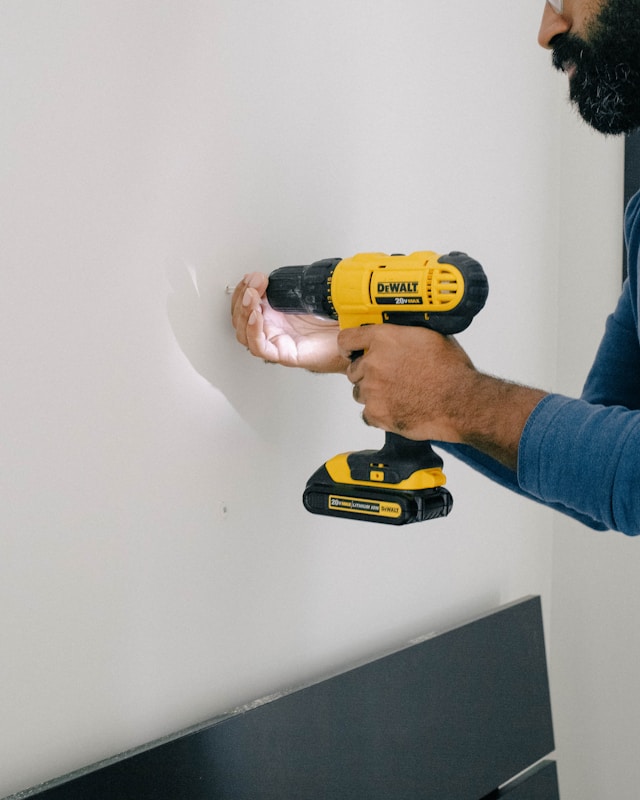
Screwdrivers:
Generally have lower power and speed than wrenches. This makes them optimal for more delicate and precise work where accuracy and control are important. The lower speed avoids material damage and provides a higher level of precision, which is critical when working with fragile materials or complex assembly operations.
Nutcrackers:
They have significantly higher power and rotational speed. This enables them to efficiently handle a large number of fasteners in a short time. The high speed and power of impact wrenches make them indispensable in applications where fast and intensive work is required, such as the assembly or disassembly of heavy machinery and structures.
Variability of nozzles
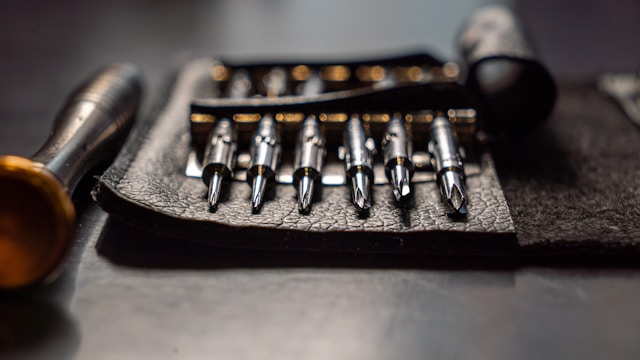
Screwdrivers:
- Screwdrivers are usually equipped with a universal quick-action chuck, which allows the user to quickly and easily change bits of different sizes and shapes. This provides a high degree of flexibility and versatility, allowing the screwdriver to handle a wide range of tasks, from driving small screws to working with large self-tapping screws.
- The variety of bits available includes flat, Phillips, star and many other types, making the screwdriver ideal for working with different types of fasteners. In addition, some screwdriver models can be equipped with special drill bits to extend their functionality.
Nutcrackers:
- Impact wrenches utilise unique head attachments designed to interact with bolts and nuts of specific sizes. These elements are usually deep heads capable of sliding onto the nut or bolt, thus ensuring a strong and secure connection.
- The variability of impact wrench accessories is usually limited to the sizes and types of heads suitable for standard nuts and bolts. This makes the impact wrench a more specialised tool, optimal for automotive, construction and other applications where high torque is required to handle large and heavy fasteners.
Application
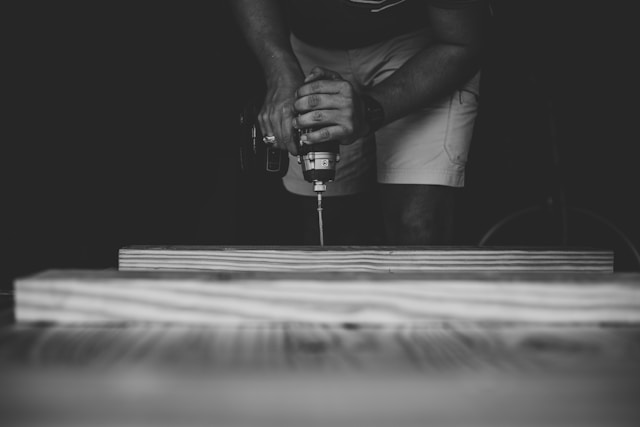
Screwdriver:
The screwdriver is widely used in small household and construction work, furniture installation, electrical installation and other tasks where precision and accuracy are required. Its lightness and versatility make it an indispensable helper in households, as well as in professional assembly and installation work.
Nutcracker:
Thanks to its high power and specially designed attachments, the impact wrench is often used in applications requiring intensive work, such as in car service centres or on construction sites. It is ideal for tasks where high speed and power are required to handle heavy fasteners, making it an indispensable tool for professional use.
Battery and Ergonomics
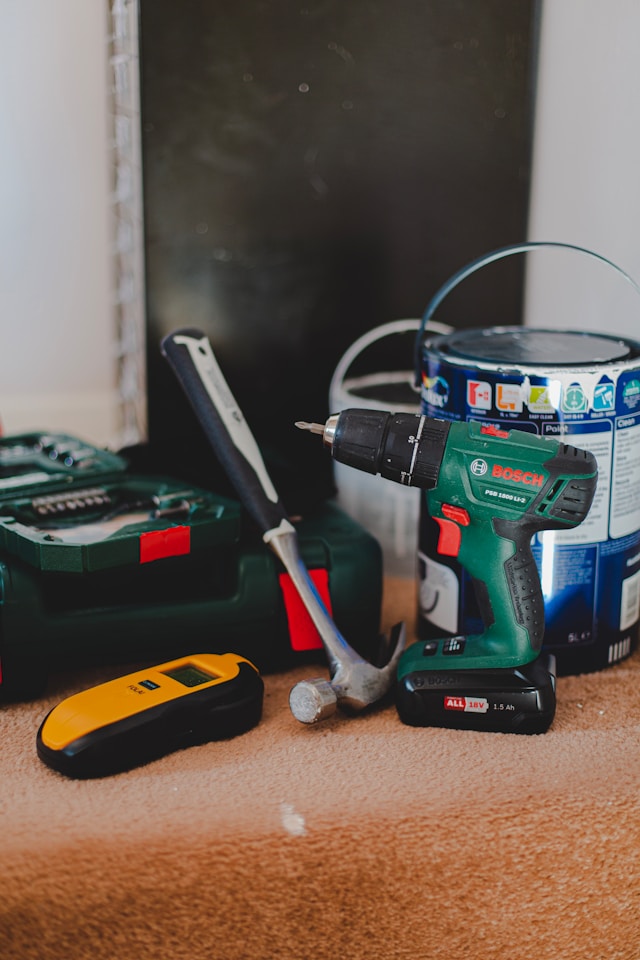
Screwdrivers:
- Screwdrivers usually have smaller batteries than wrenches, making them lighter and more compact. This provides greater convenience when working in confined spaces or when working at height, e.g. when installing light fittings or working on ladders.
- The ergonomics of screwdrivers also include comfortable handles and weight balancing, which reduces fatigue during prolonged work. Many models are equipped with an illuminated working area, which is useful when working in poorly lit areas.
- The small size and weight make screwdrivers ideal for domestic use and jobs requiring high manoeuvrability and precision.
Nutcrackers:
- Impact wrenches that require more power for heavy-duty work are usually equipped with larger and more powerful batteries. This increases the overall weight and size of the tool.
- Heavy and bulky impact wrenches can be less convenient for working in tight spaces, but their ergonomics are often adapted to maximise comfort and control for high-torque jobs. This can include anti-vibration grips, tool balancing and additional handles for improved control.
- The large size and weight of impact wrenches make them less favoured for prolonged use in confined spaces, but they are indispensable for jobs requiring high power and torque.
In conclusion, the choice between a screwdriver and an impact wrench in terms of battery and ergonomics depends on the specific job. A screwdriver is better suited for light and precise work in confined spaces, while an impact wrench is the preferred option for heavy-duty work where more power and torque are required.
Simply go to the reBITme website and start saving today. Get cashback on every purchase! Click here and start saving now!
